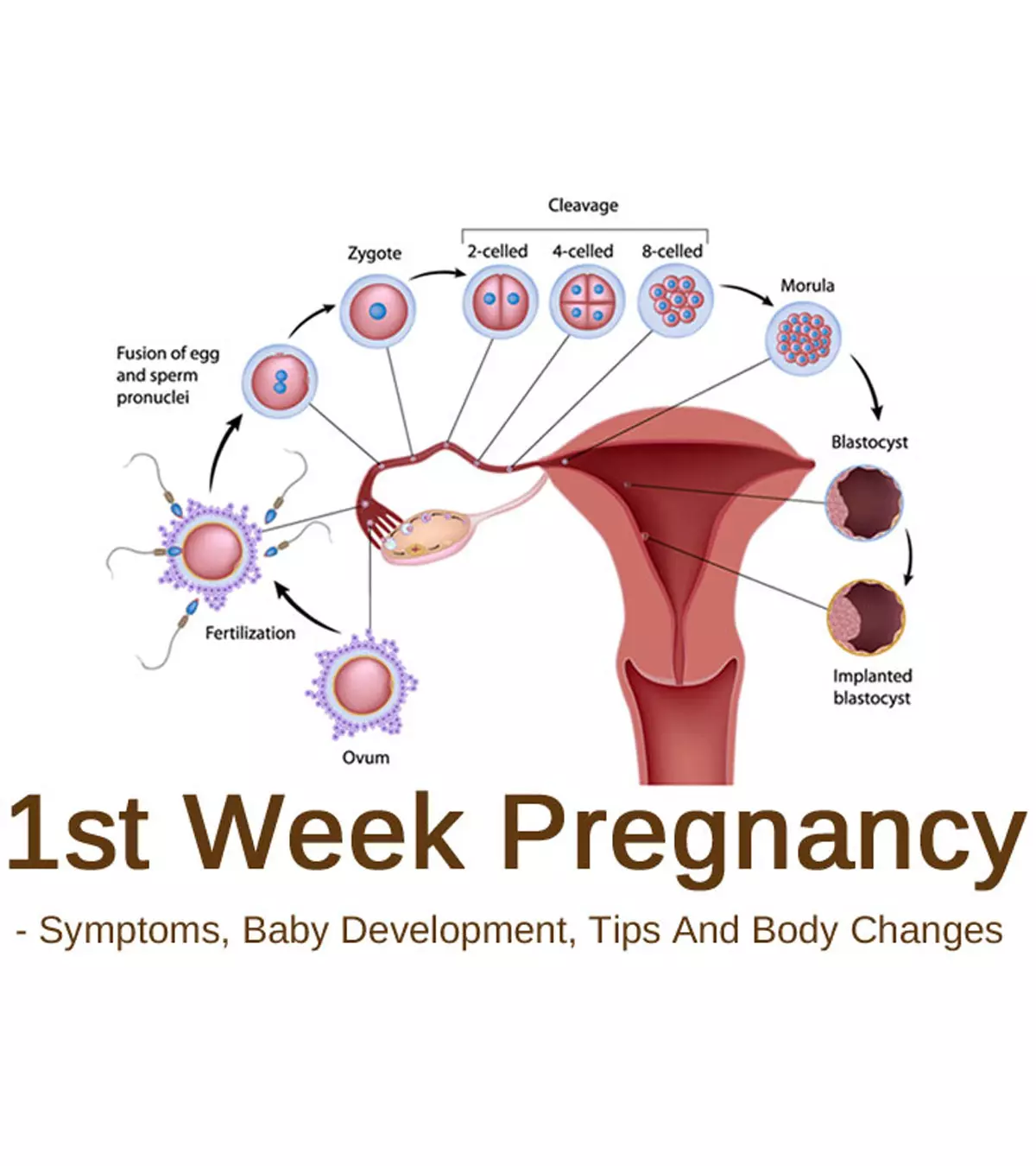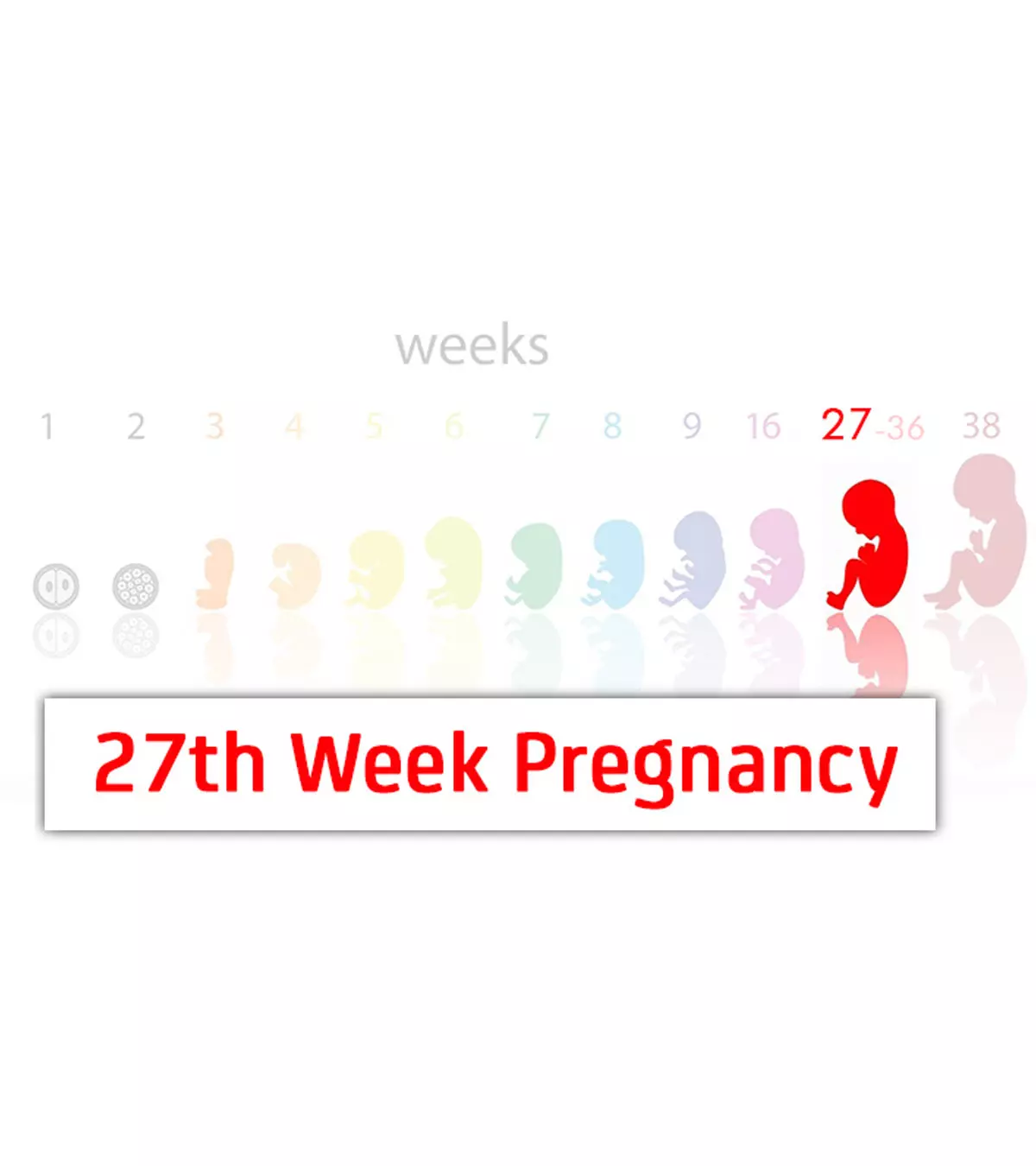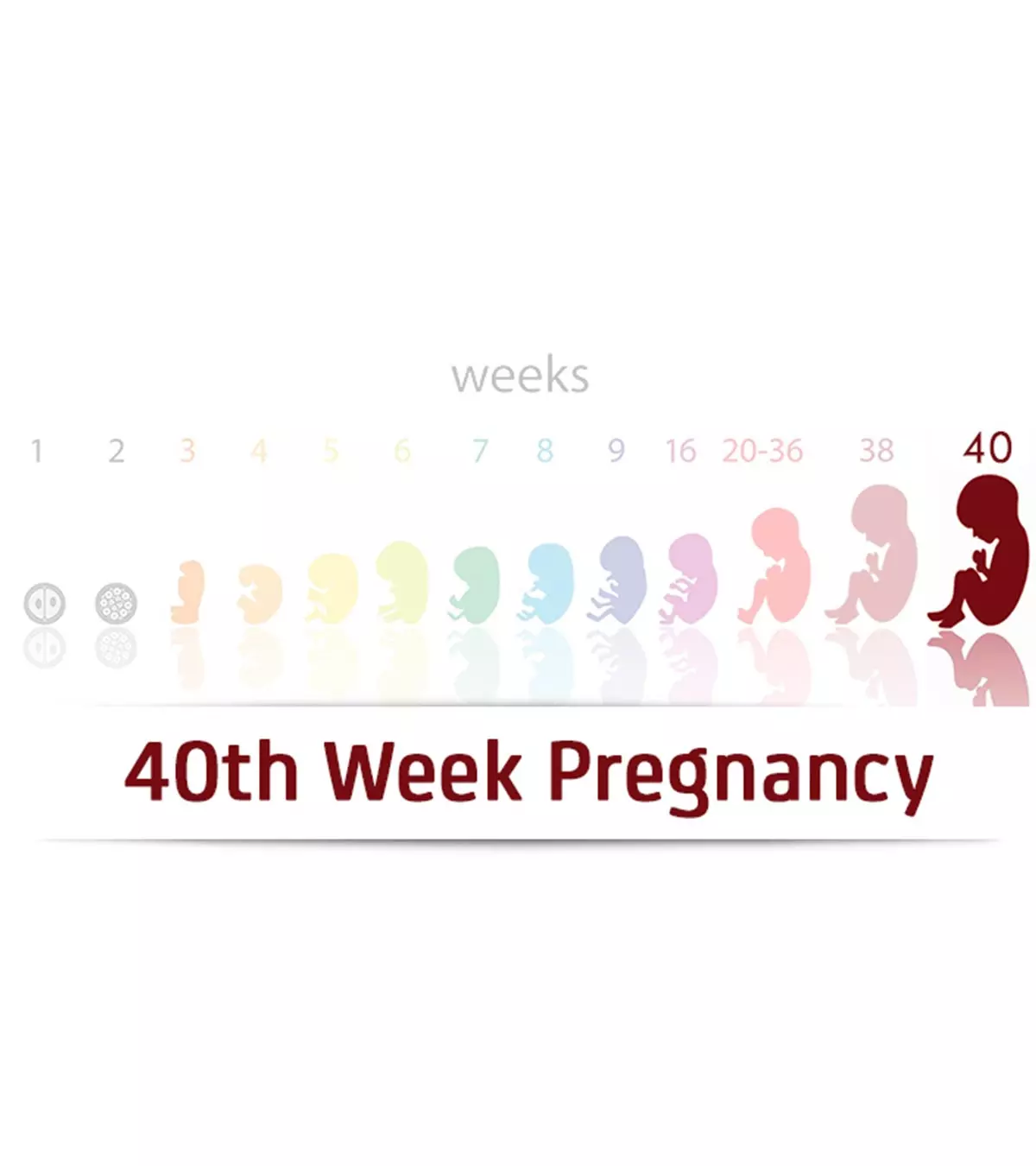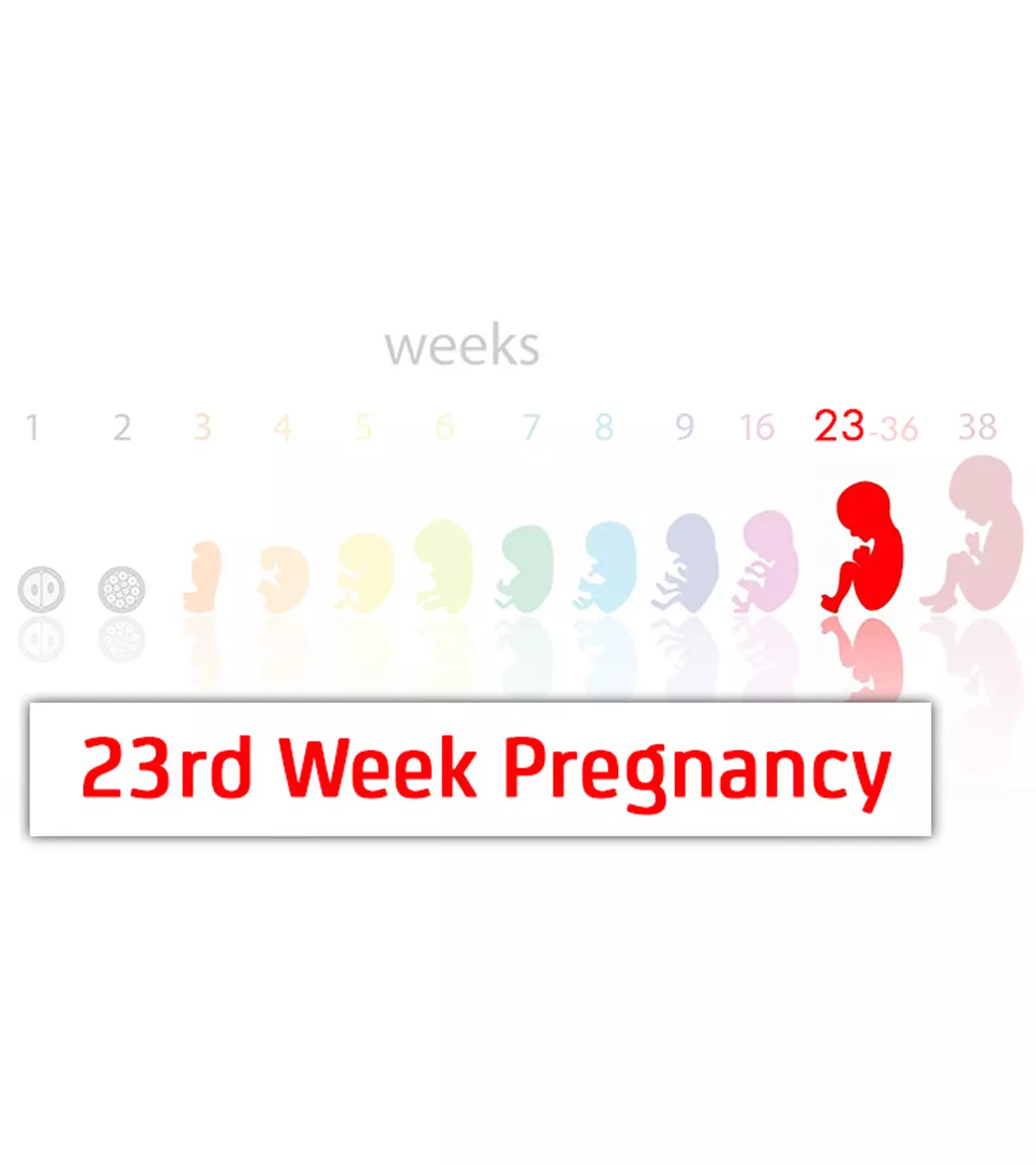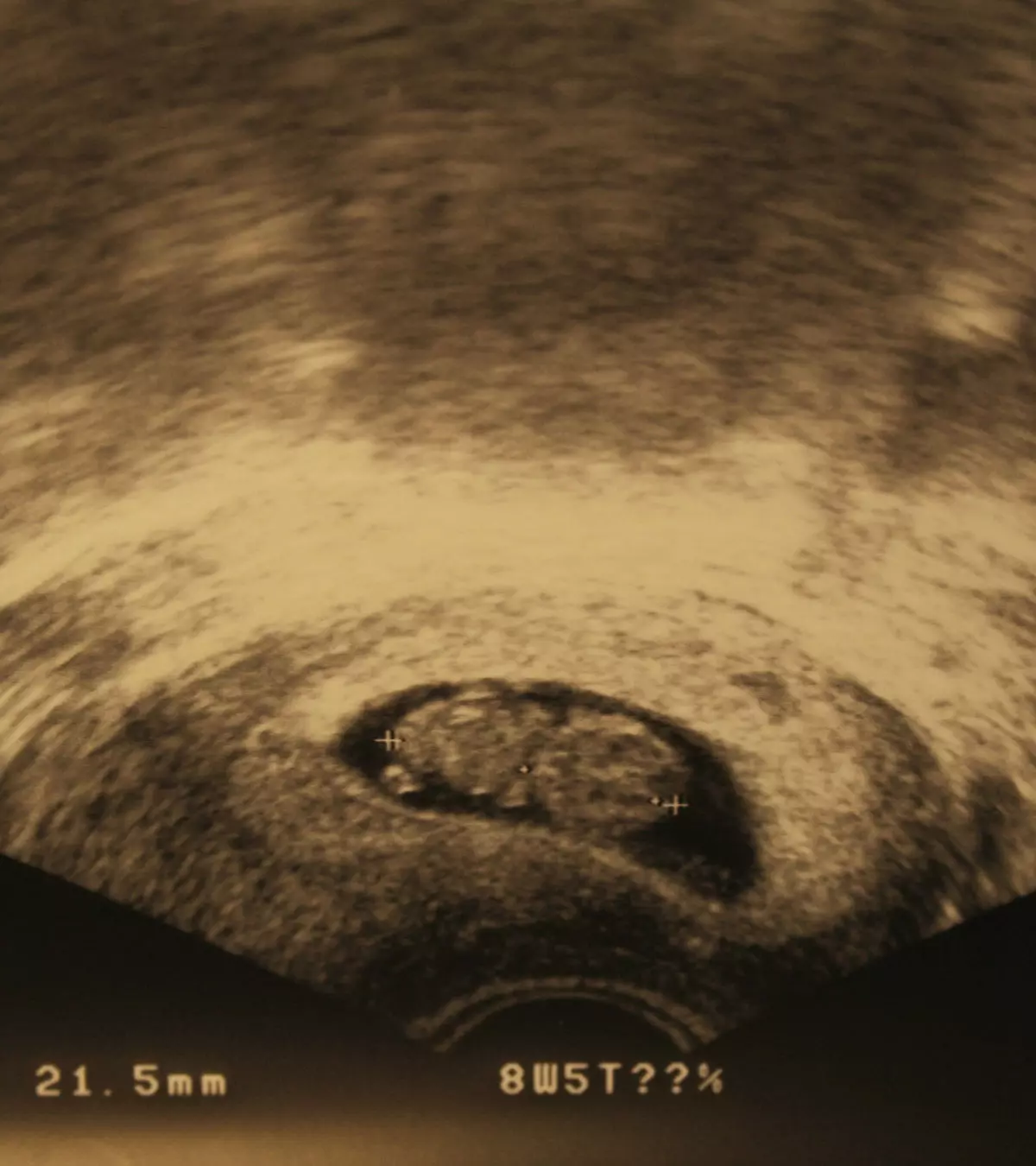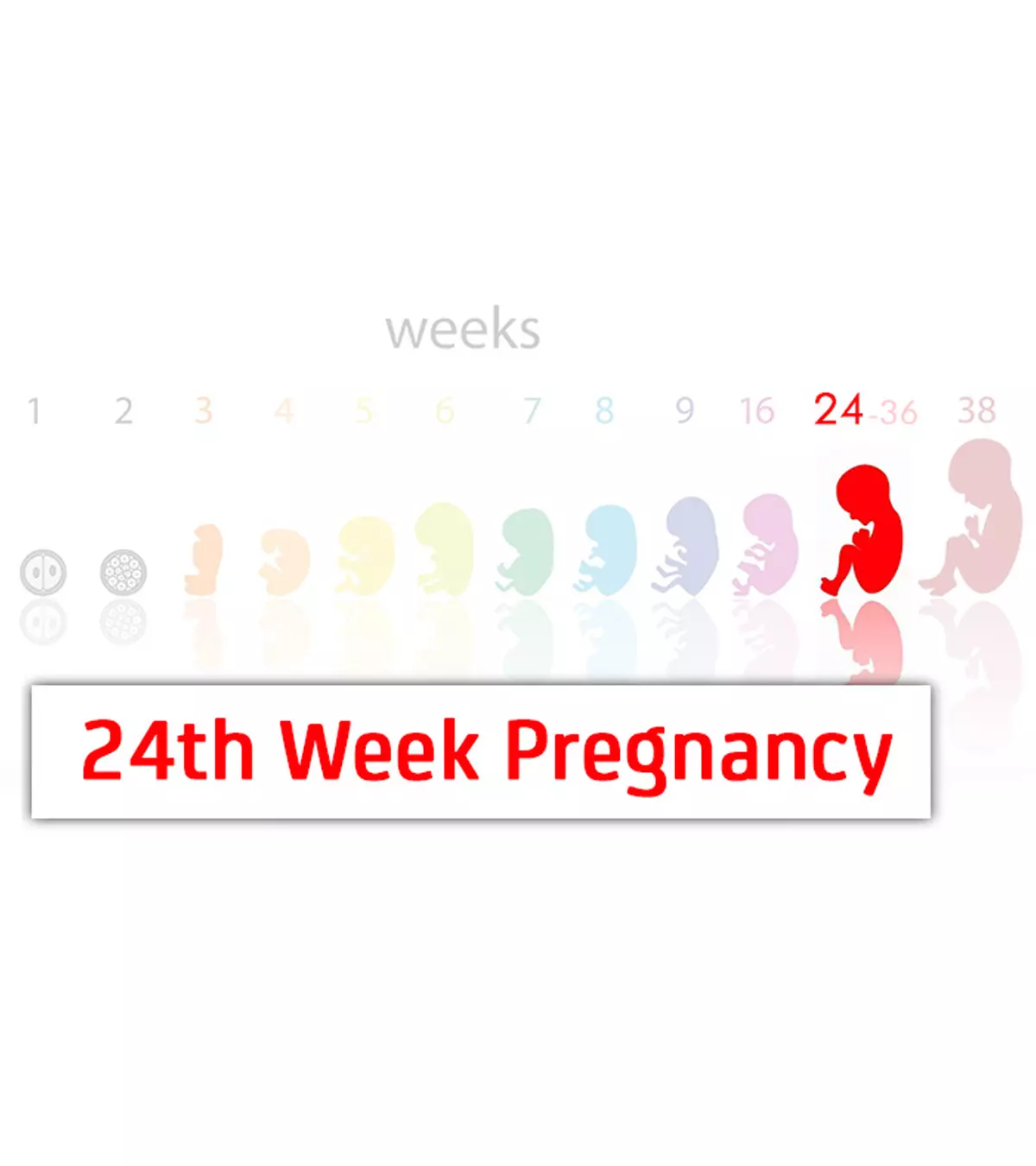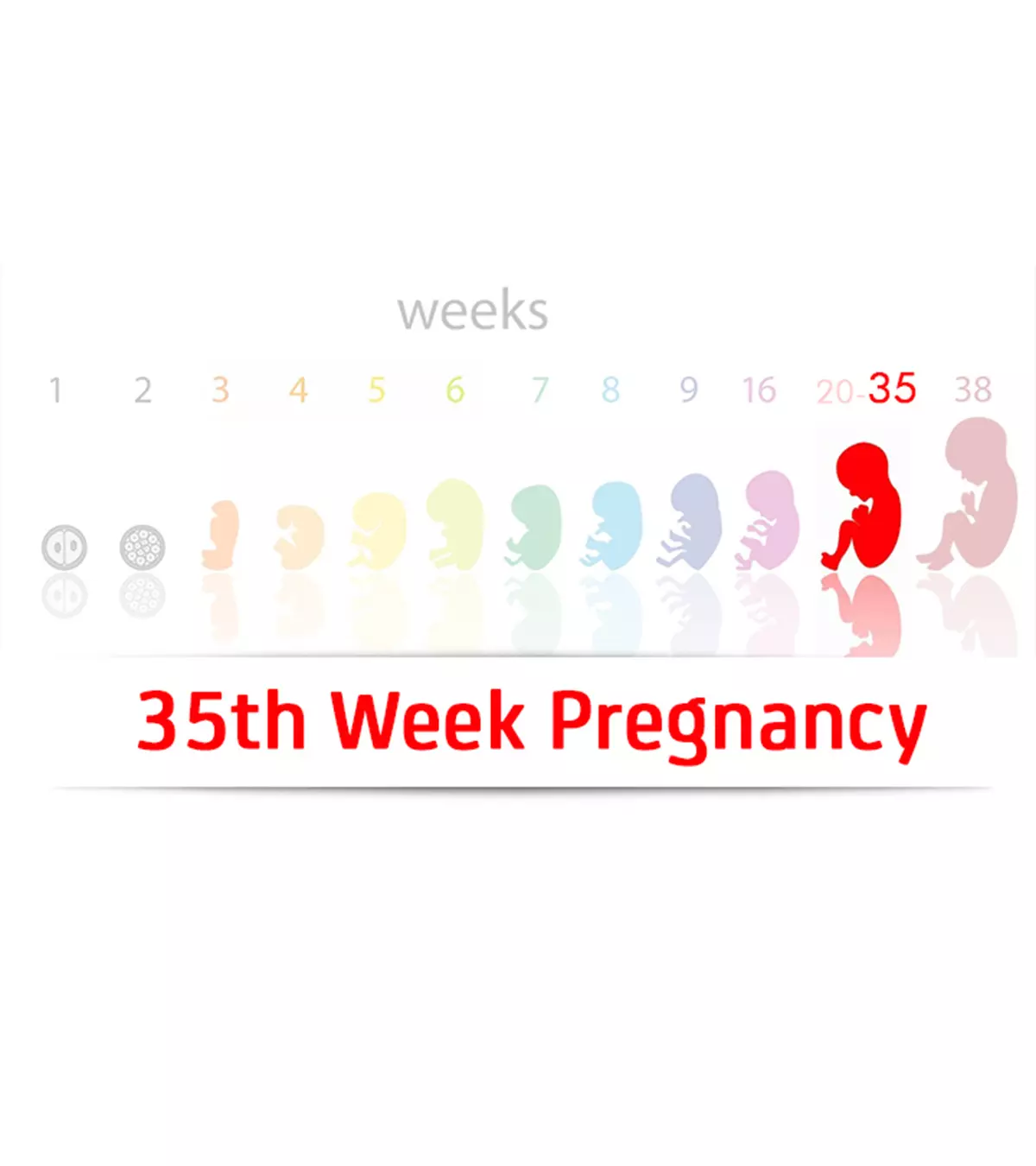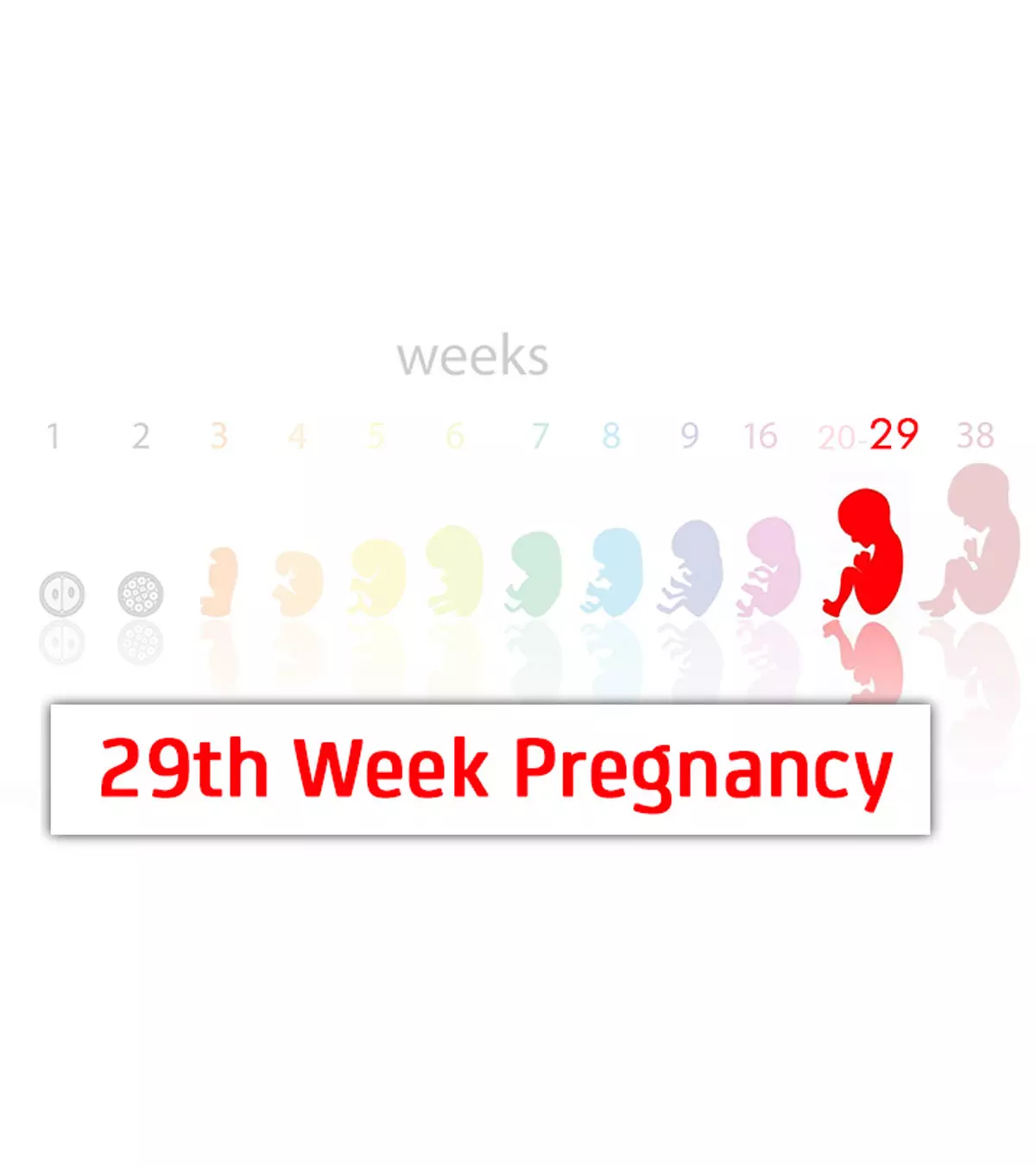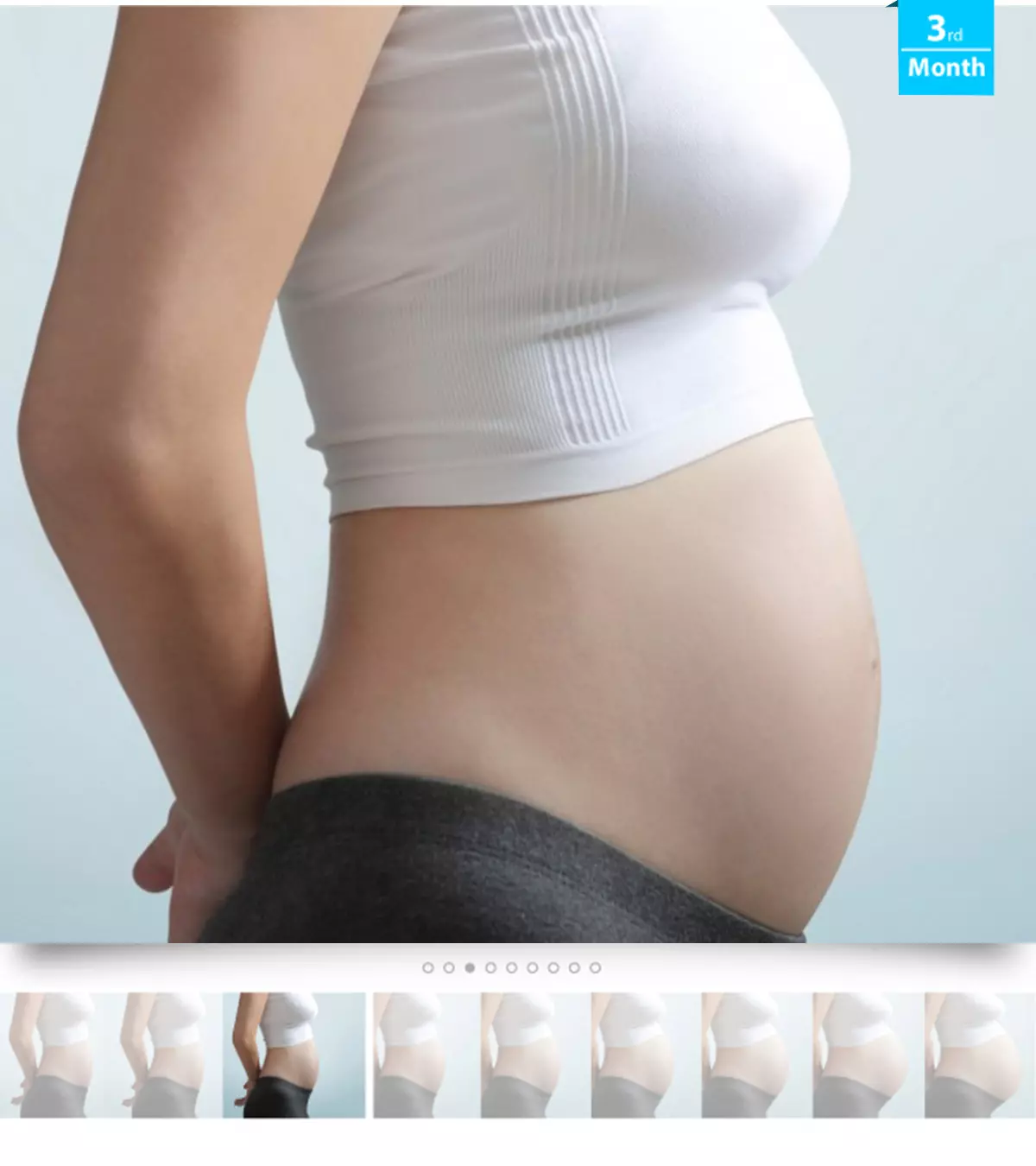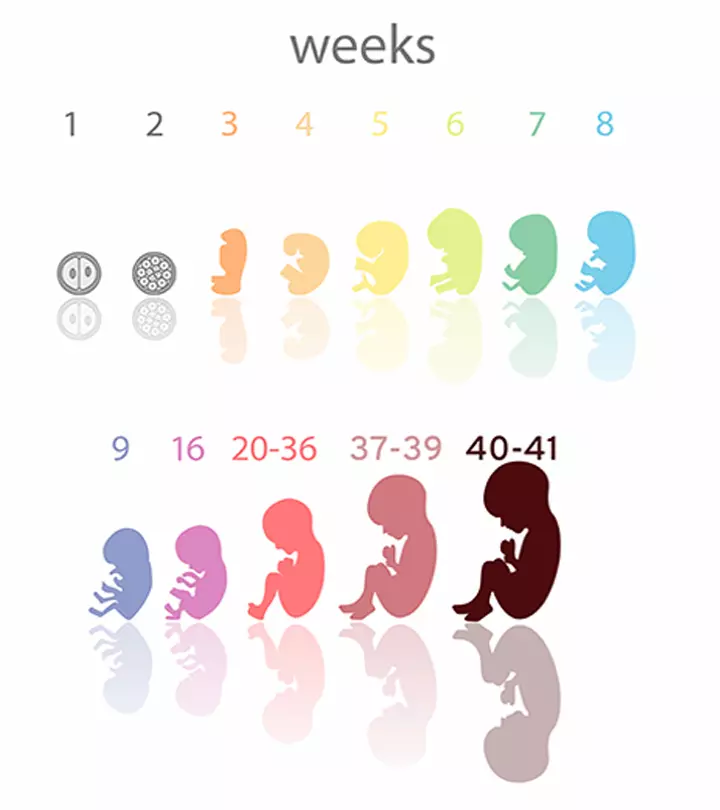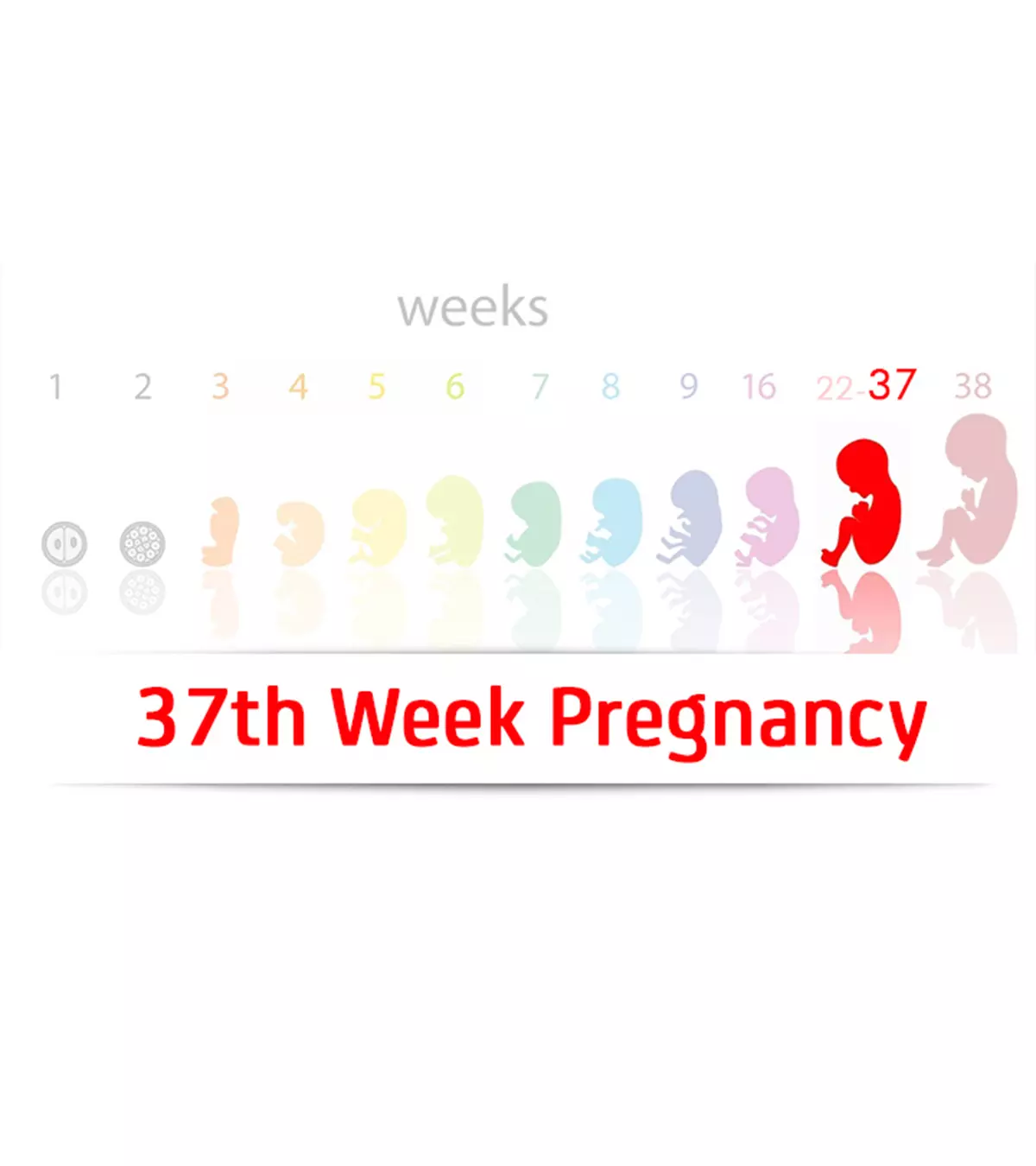
Image: Shutterstock

Key Pointers
- Baby’s length is equivalent to that of a stalk of Swiss chard, and they weigh between 6-7 lbs (2.7-3.2 kg).
- The organs of the baby are almost fully developed, the lungs are typically fully matured, and they have meconium in their digestive system.
- Symptoms experienced during this stage include Braxton-Hicks contractions, heartburn, hemorrhoids, backache, and varicose veins.
- Emotional changes may occur, such as mood swings, anxiety, and stress.
- Signs that labor is approaching include lightening, discharge of the mucus plug, water leakage, backache, cramps, contractions, and bloody/pink vaginal discharge.
How Many Months Pregnant Are You At 37 Weeks?
At 37 weeks, you are in the ninth month of pregnancy and just a few weeks away from the due date.
How Big Is Your Baby In The 37th Week?
In this week, the baby is usually as long as a stalk of Swiss chard (1). An average baby measures 18in (45.7cm) in length and weighs six to seven lb (2.7 to 3.2 kg) (2).
Baby Development At 37 Weeks
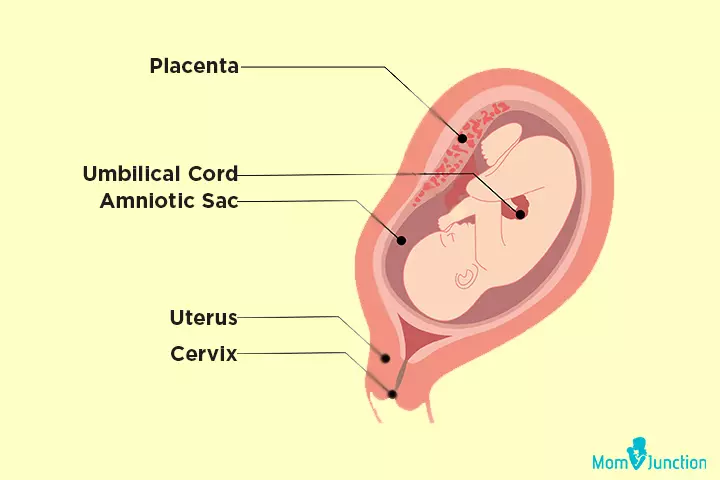
Here is how the baby’s organs develop this week:
| Baby organs | Development |
|---|---|
| Skin (3) | Fat is getting deposited under the skin |
| Hands (4) | Strong enough to grasp with fingers |
| Heart (5) | Beats more than 50 million times |
| Muscles and bones (3) | Fully developed |
| Lungs (6) | Usually fully matured |
| Digestive system (7) | Contains meconium, a dark green substance, which is your baby’s first poo |
| LanugoiSoft, unpigmented hair that covers the fetus and the newborns, providing them warmth and protection. | Almost gone |
| Genitals | Fully developed, but might look swollen due to the hormones in the mother’s body |
Fetal position and movements:
The baby is usually in a head-down position inside the womb and curled up with legs bent up towards the chest (8). There is very little room for the baby to move, but it can change the position.
The movements will not be as rigorous as they were in the last couple of weeks. If you notice any significant decrease in the fetal movements (less than ten movements in two hours), then see your doctor (10). By this week of fetal development, the baby develops a sleep pattern too.
What Symptoms Do You Experience In The 37th Week Of Pregnancy?
Here are some of the pregnancy symptoms that you may experience this week (10):
- Nausea: A stomach upset could be experienced during this period, making you feel nauseated at times. It could be an indication of the nearing labor.
- Insomnia: The aches, cramps, and anxiety could make sleeping difficult. According to a study published in the Journal of Sleep Research, the third trimester of pregnancy showed a higher prevalence of insomnia symptoms, with 39.7% of women experiencing them.
- Braxton-Hicks contractions: You will experience irregular and painless contractions, which help you prepare for the labor.
- Heartburn: The growing uterus pushes the gastric acid upward into the esophagus, causing heartburn.
- Hemorrhoids: The extra pressure put by the enlarged uterus on the rectal veins causes swelling of the blood vessels, which is painful and itchy.
- Spotting: The cervix is extra sensitive and can get irritated, leading to spotting.
- Bloody show: A pink discharge may be noticed due to the rupturing of the cervical blood vessels, as it starts dilating in preparation for labor. The mucus plug tinged with blood will be discharged through the vagina.
- Pelvic pain: You may experience pain as the baby moves down into the pelvis.

- Image: Shutterstock
- Backache: The extra weight of the baby puts pressure on the lower back.
- Varicose veins: The increased blood flow to the lower part of the body causes a swelling of the veins in the legs.
 Quick tip
Quick tip- Leg cramps: You will experience them usually at night.
- Pregnancy brain: Forgetfulness is common during this time due to hormonal fluctuations.
As you near full-term, you will experience physical and psychological changes as well.
Changes In The Body At 37 Weeks
Here are some physical and emotional changes pregnant women are likely to have this week (10):
Physical changes:

Image: Shutterstock
- Enlarged and itchy belly
- Stretch marks
- A white, milky discharge called colostrumiThe first breast milk produced after the baby's birth, which contains fewer carbohydrates and fats and more proteins than mature milk. Enlarged breast with darker areola and nipples
- Skin pigmentation like linea nigra
 Quick tip
Quick tipEmotional changes:
- Mood swings
- Anxiety
- Stress and fear of labor pain and delivery
 Quick tip
Quick tipAs you are close to the due date, there are chances you could get into labor anytime now. Read on to learn about the signs of labor you may experience this week.
Signs Of Labor At 37 Weeks
Look out for the following signs of labor during this week (8):
- Lightening, which refers to the baby dropping deep into the pelvis.
- Discharge of thick mucus-plug from the vagina.
- Constant water leak or a gush of fluids due to rupturing of the amniotic saciThe thin-walled fluid-filled sac in the uterus where the embryo grows and eventually forms the fetus. .
- Low, dull backache.
- Cramps, with or without diarrhea.
- Frequent and painful contractions at regular intervals.
- A vaginal discharge tinged bloody or pink in color.
- Effacement, which refers to thinning, shortening, and softening of the cervix (9).
Drawing from personal experience, Tessa Rayanne, a blogger, highlights the pre-labor signs and symptoms she encountered in the 37th week of her pregnancy. She notes, “My hips are achy at different times of the day still, and so are my upper thighs. I have had cramps in my lower abdomen almost every day now..they feel like menstrual cramps (mostly while working out). On Tuesday night at bible study, I had MAJOR cramps, more painful than regular period cramps. I was scared for a second that I was beginning labor, but they subsided after an hour… It felt like my uterus was pulling upward, and I had back pain at the same time. I also have had this pinching, sharp, tickly feeling in my cervix area at random moments of the day. I have had shooting hip pain randomly as well the last couple days (i).”
If the labor pain starts on its own by the 38th week, then it means your baby is ready to be born and will be healthy.
In any case of medical conditions like gestational diabetesiPregnancy-specific condition characterized by high blood sugar levels, which may pose a risk of complications. , preeclampsiaiA pregnancy disorder characterized by high blood pressure, water retention, and protein content in urine. , placental problems, or uterine infections, the doctor may suggest labor induction this week.
Your OB/GYN Visit
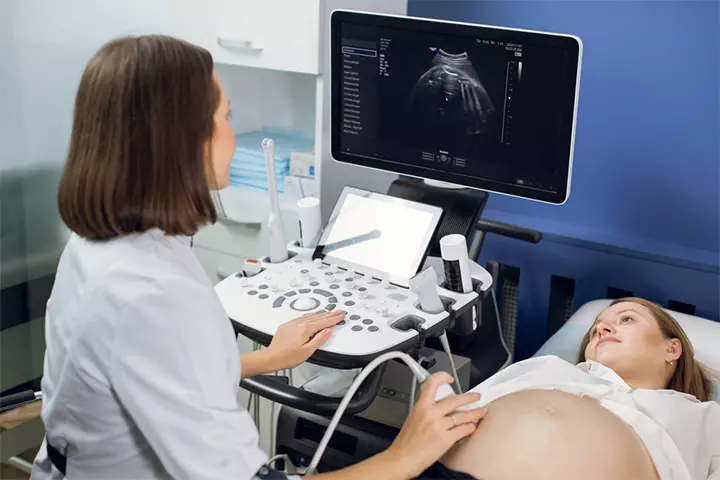
Image: Shutterstock
This week’s prenatal care checkup includes:
- Weight gain and blood pressure check.
- A urine test to check for protein and glucose levels.
- Inquiry about any physical discomforts that you are experiencing and the baby movements.
- Measuring the fundal height to determine the size of the baby.
- Ultrasound to determine the length, weight, heart rate, and amniotic fluidiA clear, yellowish liquid that surrounds the fetus in the amniotic sac. level. It is a part of the biophysical profile.
- Checking the cervix to know the dilation.
- Group B strep test is a screening test of the vaginal swab, done to check for Streptococcus group B infection. If you are diagnosed with GBS, then antibiotics will be given when your labor starts, to reduce the risk of infection to the baby (10).
The doctor may also discuss:
- Pregnancy-induced hypertension
- A possible risk of anemia, gestational diabetes, breech positioning orintrauterine growth restrictioniA condition in which the fetus does not grow in the uterus as expected due to several issues. (IUGR).
- Labor induction in the case of twin pregnancy.
- Other medical issues.
- When to call the doctor, if you think you are in labor.
It is essential for you to be informed about the signs of labor, as you can expect it anytime from this week onward. Also, continue to take care of yourself at home.
Tips For Mom-to-be

Image: Shutterstock
- Eat healthy, home-cooked food for your cravings.
- Avoid carbonated drinks, spicy and citrus foods if you have heartburn.
- Do not eat deep fried or uncooked food.
- Stay hydrated, but drink less water at least one hour before going to bed. This reduces the urge of urination in the night.
- Avoid jerky movements – get up slowly from sitting or lying positions.
- Walking will help you feel energetic and sleep soundly to avoid sleep deprivation.
- Get a massage from a professional masseuse to help ease the back pain, fatigue and body ache.
- Take a warm bath to ease the discomfort of leg cramps, hemorrhoids, and back pain.
- Wear loose and comfortable maternity clothes.
- Wear comfortable flats and slippers.
- Avoid taking any medication without the doctor’s advice.
- Keep all the baby essentials ready as you can deliver at any time from now.
- Stock up your fridge with meals that you can have after the baby is born.
- Find about cord blood banking and register for it, if interested.
- Know about the childbirth options, vaginal or cesarean section, at your healthcare center.
- Arrange for childcare if you already have a kid.
- Read pregnancy milestones, infant care and breastfeeding related books.
- Enroll in childbirth classes to learn about labor and the techniques of birthing.
- Spend more time with your family and friends. Do not hesitate to share any concerns or ask them for help. You can also share your concerns with a midwife.
- Apply for a maternity leave.
Pack your hospital bag in advance, including essentials like comfortable clothing, toiletries, and any personal items that can help make your stay more comfortable. Additionally, consider preparing a birthing plan to discuss with your healthcare provider. This is also the phase when your partner needs to be more involved. Find out next how they can help.
Tips For Dad-to-be
- Help you with the daily chores.
- Spend more time with you.
- Accompany you to the prenatal visits.
- Accompany you to walks and pregnancy classes.
- Ensure that the hospital bag is ready with all the necessary stuff including postpartum pads, and nursing bras.
- Plan a day outing for a change or a baby shower for your partner.
- Plan a family leave to support your partner in the postpartum period.
- Start looking for a good pediatrician.
- Be prepared to drive you to the hospital.
- Set up a nursery.
- Arrange for baby gear such as a stroller and car seat.
Frequently Asked Questions
1. What size fruit is a baby at 37 weeks?
At 37 weeks, the baby is about the size of a honeydew melon (12).
2. Can I have sex when I’m 37 weeks pregnant?
You may have sexual intercourse anytime throughout pregnancy unless your doctor advises against it due to any potential risks or complications (13).
3. Do babies born at 37 weeks need NICU?
Babies born at 37 weeks are called late preterm babies who may not require a NICU. But they would be observed for any health issues as they may still be at a higher risk of complications than full-term babies (14).
Pregnancy is a journey filled with anticipation, excitement, and mixed emotions. Once you are 37 weeks pregnant, your wait is almost over as your due date is just around the corner. You may experience changes such as milky discharge from breasts, anxiety, and linea nigrai during this period. These are common at 37 weeks of pregnancy. You need to look out for the signs of labor, as it may happen anytime soon. Knowing the different labor symptoms can help ensure a smooth and safe delivery process. Ensure to follow up with your Obstetrician/Gynecologist for the routine checkups during this week and for some effective tips to prepare you for the journey of parenting.
Infographic: Prenatal Tests During 37th Week Of Pregnancy
Being in the 37th week of pregnancy means you’re nearing your delivery date, and the anticipation of holding your baby in your hands increases. At this stage of pregnancy, your doctor may suggest various tests and exams, as listed in the infographic below, to monitor your and your baby’s health. Illustration: Momjunction Design Team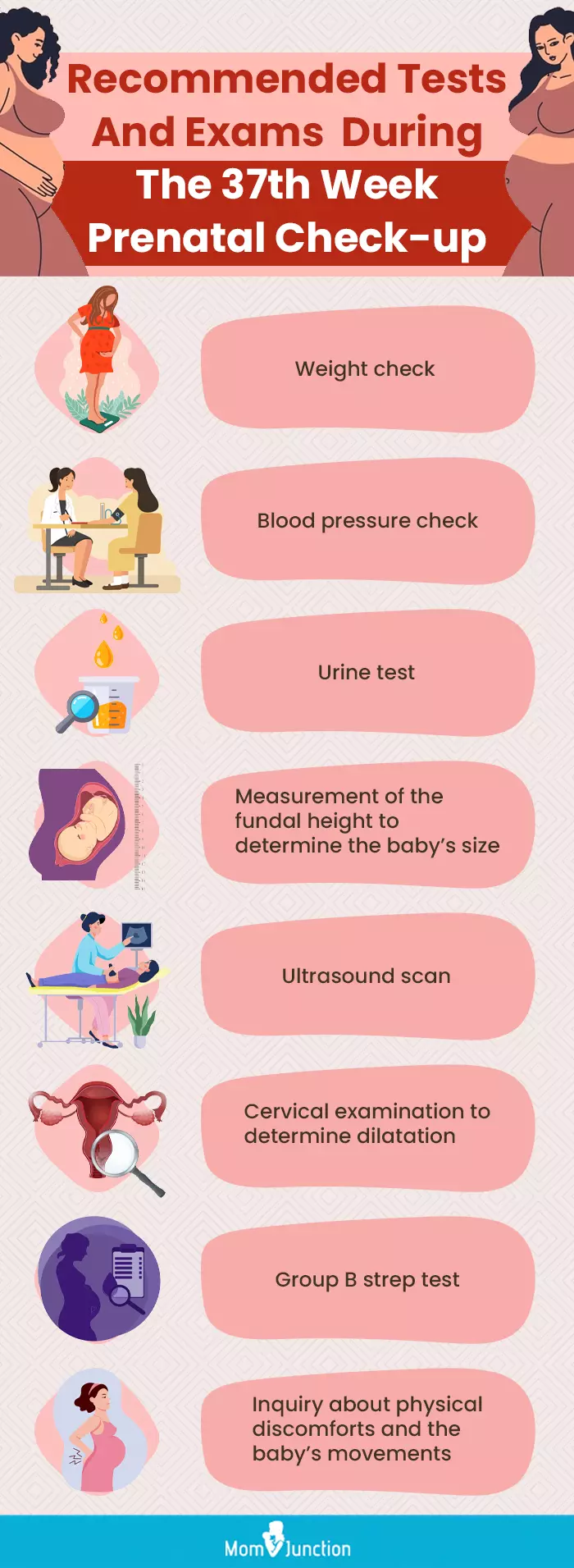
Illustration: 37 Weeks Pregnant: Symptoms Tips And Baby Development
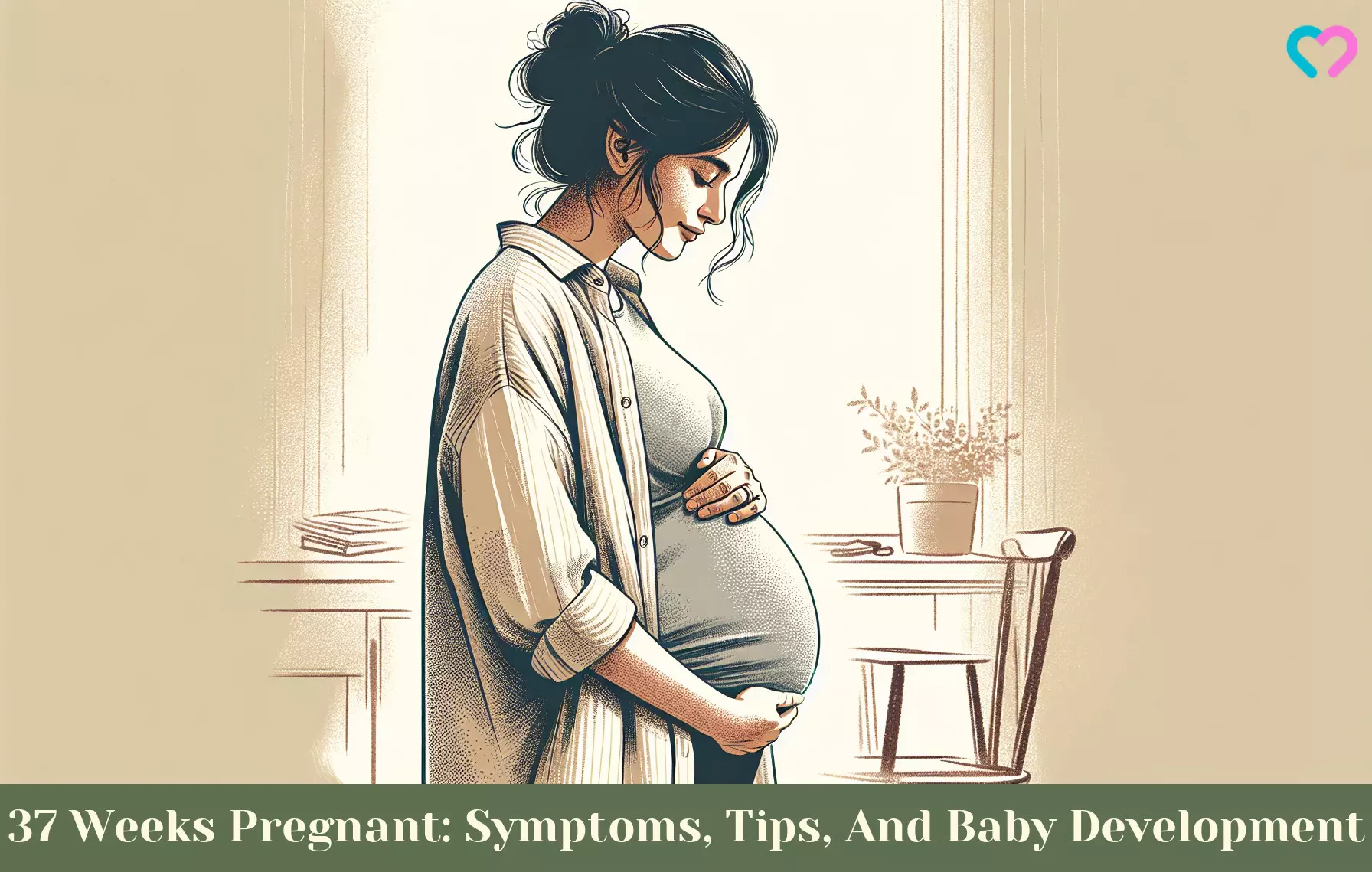
Image: Stable Diffusion/MomJunction Design Team
Personal Experience: Source
MomJunction articles include first-hand experiences to provide you with better insights through real-life narratives. Here are the sources of personal accounts referenced in this article.
i. 37 weeks pregnant.https://tessarayanne.blogspot.com/2013/06/37-weeks-pregnant-9-month-pregnancy.html
References
- 37 Weeks Pregnant – All You Need To Know.
https://www.tommys.org/pregnancy-information/im-pregnant/pregnancy-week-by-week/37-weeks-pregnant - 37 Weeks Pregnant.
https://americanpregnancy.org/healthy-pregnancy/week-by-week/37-weeks-pregnant/ - Fetal Development.
https://medlineplus.gov/ency/article/002398.htm - Embryology Hand.
https://www.ncbi.nlm.nih.gov/books/NBK538240/ - Prenatal Summary.
https://www.ehd.org/prenatal-summary.php - 37 Weeks Pregnant.
https://raisingchildren.net.au/pregnancy/week-by-week/third-trimester/37-weeks - Pregnancy At Week 37.
https://www.pregnancybirthbaby.org.au/pregnancy-at-week-37 - When Does Labor Usually Start?
https://www.nichd.nih.gov/health/topics/labor-delivery/topicinfo/start-of-labor - Effacement
https://my.clevelandclinic.org/health/symptoms/23156-effacement#:~:text=Effacement%20is%20the%20thinning%20and,effaced%20for%20a%20vaginal%20delivery. - Group B Strep And Pregnancy.
https://www.acog.org/womens-health/faqs/group-b-strep-and-pregnancy#:~:text=Yes%2C%20pregnant%20women%20are%20screened - Treat Varicose Veins Naturally During Pregnancy.
https://americanpregnancy.org/healthy-pregnancy/pregnancy-health-wellness/treat-varicose-veins-naturally-during-pregnancy/ - Your pregnancy: weeks 37 to 40;
https://healthy.kaiserpermanente.org/health-wellness/maternity/third-trimester/weeks-37-40 - Sex in trimester one, two, and three of pregnancy;
https://www.nct.org.uk/information/pregnancy/wellbeing-and-lifestyle-pregnancy/sex-during-pregnancy - Premature infant;
https://medlineplus.gov/ency/article/001562.htm#:~:text=Late%20preterm%20babies%20who%20are
Community Experiences
Join the conversation and become a part of our nurturing community! Share your stories, experiences, and insights to connect with fellow parents.
Read full bio of Dr. Sangeeta Agrawal
Read full bio of shreeja pillai
Read full bio of Rebecca Malachi
Read full bio of Aneesha Amonz







